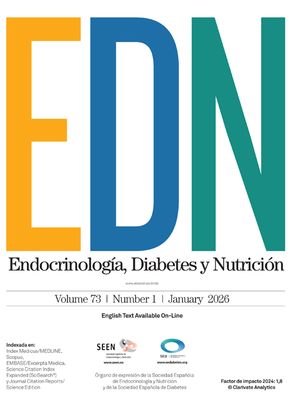The Spanish Society for Surgery of Obesity and Metabolic Diseases and the Spanish Society for the Study of Obesity, with the support of the Obesity Section of the Spanish Surgeons’ Association, based on the increasing importance of severe obesity in our society, the information available, and the difficulties found by patients to access structured treatment circuits, have decided to prepare the following decalogue, directed to administration and society as a whole and intended to reflect the current situation, the existing needs, and the reference framework for adequate management:
- 1.
Severe obesity is a chronic condition with an epidemic trend and increasingly common that predisposes to diseases such as diabetes, high blood pressure, sleep apnea, or hypercholesterolemia, decreasing quality of life and increasing cardiovascular risk, risk of some types of cancer, and the chance of early death.
- 2.
Obesity is more severe the greater the body mass index, and depending on its associated diseases.
- 3.
New treatments for obesity, particularly drugs or endoscopic procedures, appear with some regularity and should be critically and positively assessed. Experience, the results reported, and the well-founded opinion of scientific societies should help establish their potential indications and in which circumstances they should be used.
- 4.
As compared to other frequently failing treatments, surgery for obesity currently represents the only effective treatment which has been shown to decrease morbidity and mortality in the long term. A wide experience exists in Spain with this type of surgery, which is a safe and cost–effective treatment to which only a few of all patients who could benefit from it have access.
- 5.
Surgery is intended to decrease mortality related to severe obesity, to control associated diseases, and to improve quality of life through an adequate, sustained weight loss and with minimum complications, with no need for achieving the ideal weight.
- 6.
There are different surgical procedure for treating severe obesity, which act by decreasing the size of the stomach and sometimes cause a certain degree of malabsorption. Selection of the specific procedure and the results achieved depend on the objective of treatment (weight loss and/or control of diseases), individualized assessment of cardiovascular risk, the associated gastrointestinal or esophagogastric disease, patient profile and preferences, and experience of the surgical team.
- 7.
Decisions should be taken within a structured process in which a multidisciplinary team of professionals (endocrinologist, psychologist–psychiatrist, surgeon, nurses, dieticians, and others, depending on the associated diseases), after a complete preoperative work-up, help the patient choose the most adequate procedure for him/her and ensure long-term follow-up. Patients should commit themselves to change their lifestyle habits and to follow the advice received.
- 8.
Surgery for obesity should preferably be performed by experienced surgeons with a high volume of activity using minimally invasive procedures (laparoscopy). Hospitals where surgery is performed should have facilities adapted to the needs of obese patients, capacity to immediately respond to potential emergencies in operated patients, and adequate results as regards postoperative complications (safety) and long-term outcome (effectiveness).
- 9.
All patients with severe obesity should be given accurate information about this treatment and should have access to these teams. The scientific societies represented by us urge health authorities and payers to promote the creation of multidisciplinary severe obesity units with adequate expertise and resources. They should also facilitate access to the circuit of patients who may benefit from surgery by applying an equity policy that does not discriminate obesity as compared to other diseases.
- 10.
Although there is no doubt whatsoever about the efficacy and cost–effectiveness of surgery in cases where it is indicated, the current offer of the public health system is very limited, with inadequate human, structural, and technical resources. Procedures are even temporarily suspended at given times of the year, and the excessively long waiting times have an impact on the state of patients.
In conclusion, severe obesity is a common problem that increases morbidity and mortality and has an impact on healthcare expenses and on society as a whole. We request a specific response to this situation, which should include recognition of the problem, provision of objective information, and an increase in the number of procedures performed every year, in order to promote access of obese people to the best treatment possible.
Please cite this article as: Casanueva F, de la Cruz Vigo F, Goday A, Ruiz de Adana JC, Monereo S, Vilallonga R, et al. Declaración sobre el tratamiento actual de la obesidad grave en España. Endocrinol Nutr. 2016;63:573–574.




